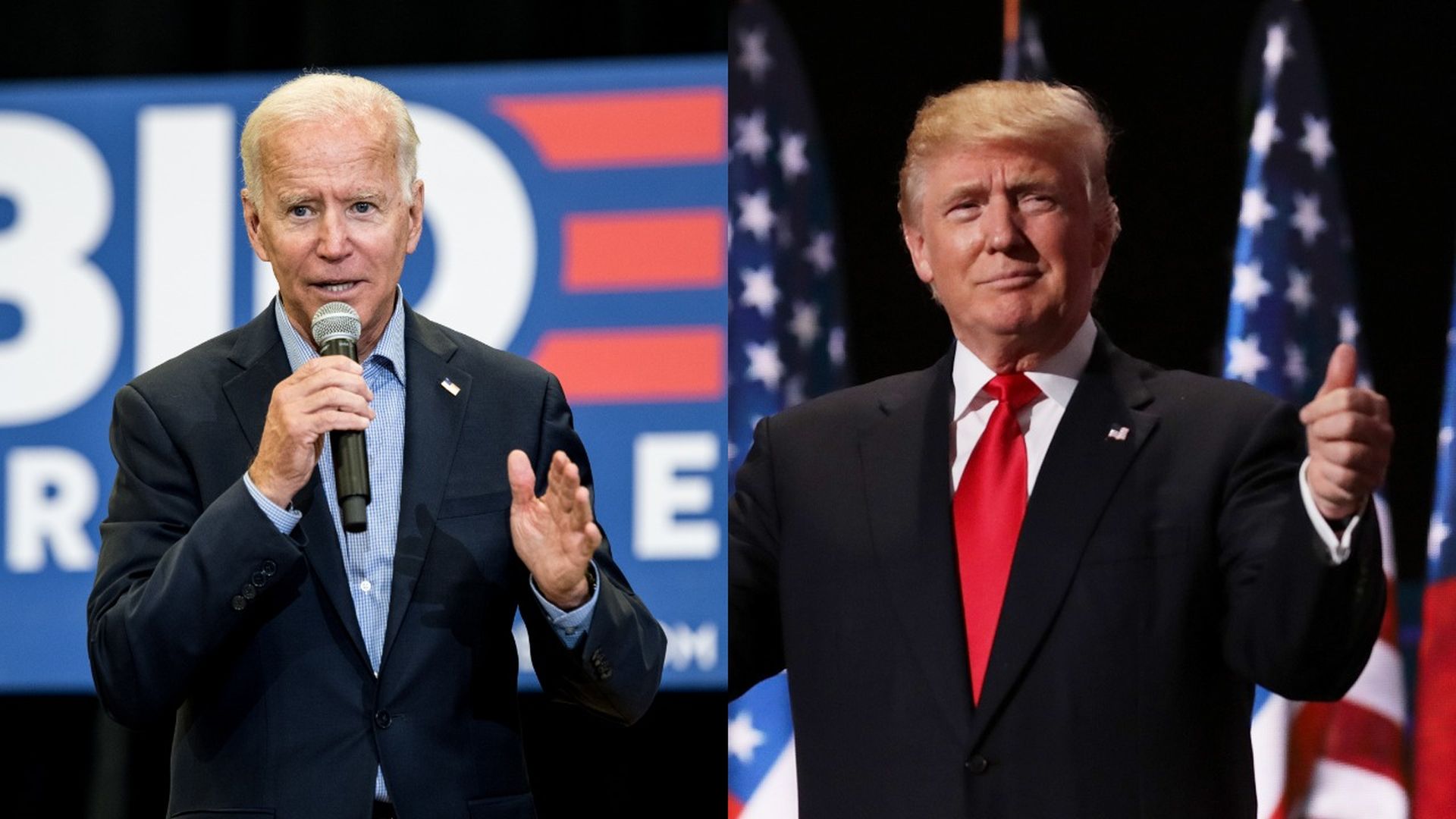Poll: Biden leads Trump among Asian Americans, many still undecided
Add Axios as your preferred source to
see more of our stories on Google.

Photos: Sean Rayford/Getty Images; Chip Somodevilla/Getty Images
Joe Biden has a 24% lead over President Trump among Asian Americans, with 14% of voters in the demographic still undecided, a poll out Tuesday from AAPI Data, Asian Americans Advancing Justice, and APIAVote indicates.
Why it matters: Asian Americans are the fastest-growing racial group in the country and saw the highest increase in turnout in the 2018 midterm elections alongside Hispanics. But there has been relatively little outreach from either political party, the new numbers suggest.
- Experts expect the demographic to see even higher turnout in 2020 because of strong enthusiasm, said Karthick Ramakrishnan, AAPI Data founder and professor at the University of California, Riverside at a news conference on Tuesday.
By the numbers: 54% of Asian American respondents said they would vote for Biden if the election were held today, compared with 30% who chose Trump.
- 54% of respondents said they have a very favorable or somewhat favorable view of Joe Biden; 34% responded that they view him very unfavorably or somewhat unfavorably.
- 34% of survey respondents said they have a favorable or somewhat favorable opinion of Trump, while 60% view him unfavorably or somewhat unfavorably.
In the upcoming House races, 52% of Asian Americans said they would support the Democratic candidate in their district, compared with 28% who said the same for the Republican candidate.
In the Senate races, 46% said they would vote Democrat, while 34% would support the Republican.
The bottom line: Only 30% of Asian Americans said they've received "a great deal" or "some" contact from the Democratic Party in the last year. 40% said they have been contacted by Republicans at any degree.
- "Many are still persuadable," Ramakrishnan said, "but they're not getting contacted by either party."
Methodology: This survey, conducted from July 4 to Sept. 10, includes a national sample of 1,569 Asian American registered voters and was offered in English, Chinese, Korean and Vietnamese. It breaks out Chinese American, Indian American, Korean American, Vietnamese American, Japanese American, and Filipino American voters. Margin of error: ±2% for the categories for all Asian Americans.
